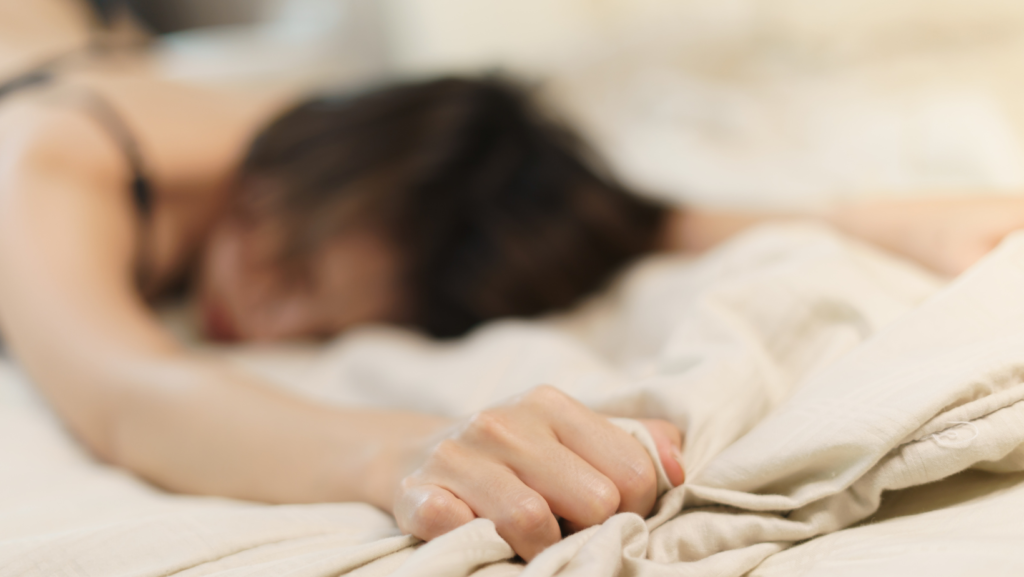
It’s normal to occasionally not feel interested in sex, but if you consistently have a low sex drive or a low libido, there might be a physiologic reason behind it. Our mind and body are interconnected, and a low libido could be attributed to various factors. These factors include issues related to your self-perception or your perception of your partner or relationship. Aside from psychological reasons, it is also important to consider how your body is supporting your hormones and nervous system on your libido sex drive.
If you see that low libido is causing problems in your relationship or if you’re worried about changes in your interest in sex, your naturopathic doctor can give you insight with a medical workup. Unexpected low sex drive can occur due to many personal or life-changing events that impact your physiology and neurobiology.
What is Libido sex drive?
The desire for sex, intimacy, or pleasure, is called your libido. Having low libido means a decrease in the desire of individuals to experience intimacy. Sometimes, a low libido happens when our body’s nutrients for making hormones in the family of hormones that provide energy, are running low. Often our body will prioritize making hormones for energy or cognitive output before it creates hormones for libido stimulus. If your desire for intimacy is low, chances are high that are hormones in your body are also low and you’ve been feeling run down fatigued, or stressed for some time.
Don’t let things like low testosterone, high stress, feeling down, lack of sleep, hormonal imbalances, or not getting enough nutrients hold you back. Learn how to strengthen your hormone system, improve its health, and feel confident about your well-being. Take control of your life and join the Confident Hormone Club now!
Things like health issues, hormones, medicine, how someone lives, having a baby, going through menopause, getting sick, sexual aversion disorder, self-esteem, security in your identity, and relationship issues can all change how much an individual wants to have sex. Some anti-depressant medications and birth control can also affect libido.
What is Sexual Aversion Disorder?
Sexual aversion disorder is a problem with how someone feels about sex. It’s one of the two kinds of problems related to Sexual Desire Disorders. The DSM(Diagnostic and Statistical Manual of Mental Disorders, a book used by health care as the authoritative guide to diagnosing mental disorders) emphasizes that someone experiencing a continuous aversion to sex and avoiding intimacy may face relationship issues due to a sexual condition. In such situations, seeking help, from your family physician, psychotherapist, and naturopathic doctor, becomes essential for finding a resolution.
How does libido sex drive affect work productivity?
The impact of low sexual drive or libido on your life can be significant and multifaceted. A low libido or low sex drive can negatively impact your professional performance. If you are grappling with low libido, it can probably affect many other situations.
- Experiencing a low sex drive is often an indicator of long-term stress, which can negatively impact your ability to fulfill your responsibilities. It may be a sign you find it difficult to concentrate, affect, and compromise decision-making you need to make some lifestyle changes.
- Energy level plays an important role in performing leadership roles or capacity for management. A healthy libido contributes to an enthusiastic presence which makes it easier to lead teams.
- Studies show that hormones like estrogens and androgens boost sexual desire. They do this by influencing a mix of brain chemicals and signals that turn up or turn down excitement. Changes in these hormones can affect sexual function, which is a direct signal for energy and body resilience, which impact how we manage stress and our cognitive function.
Symptoms of Libido sex drive

- Feeling a lack of emotional or physical connection with your partner
- Difficulties in relationships
- Stress, anxiety, or depression
- Sexual issues, such as erectile dysfunction or vaginal dryness
- Hormonal changes during pregnancy and the postpartum period
- Decreased hormone levels with aging, especially during menopause
- Medications, including those for high blood pressure or antidepressants
- Use of hormonal contraception like the pill, patch, or implant
- Excessive alcohol consumption
Treat low sex drive with naturopathic treatment
The naturopathic doctors at Make Care Health employ a comprehensive approach to treat low sexual desire by identifying root causes that could be affecting sexual desire. They will recommend specific dietary adjustments, herbs, lifestyle modifications, natural therapies, and supplements, such as maca root, ginseng, and Tribulus Terrestris, which support building androgenic hormones, like testosterone and cortisol, which are important for driving libido.
Our team helps to manage stress by supporting blood sugar regulation, nutrient repletion for making hormones that help with energy, and activating the relaxation or parasympathetic nervous system, chronic stress can negatively impact libido.
We also aim to optimize sleep, manage weight, and incorporate regular physical activity to help you improve overall vitality and sexual well-being. You can learn about these treatment tools and how they work, as well as how to enhance both the emotional and physical aspects of sexual health in the Confident Harmone Club.
Why don’t I enjoy sex anymore with my boyfriend?
There are many reasons why someone might not find sex enjoyable with their boyfriend. Some common reasons are when trust is broken after cheating, feeling tired, bored, or not agreeing on raising children. But remember, the reasons can be different for each person.
It could be helpful to talk to your partner about how you feel and find ways to make your relationship exciting again. You could also think about talking to a therapist or counselor. They can help you determine if there are any hidden problems that make you uninterested in sex.
What causes high sex drive in females?
Changes in hormones can significantly affect how much someone wants sex. Balanced levels of hormones such as testosterone and estrogen can boost your sexual desire, making women more interested in intimacy. Estrogen levels rise in women before menstruation and again and during ovulation, causing an increase in sex drive. Also, doing more physical activity will increase testosterone production which will increase estrogen.
What happens when a man is not sexually active?
Sperm production is a complex process affected by many things, like how often you have sex. Mayo Clinic says there needs to be at least 15 million/mL of sperm in each ejaculation, moving well, (at least 40% of them should be moving) for the best chances of fertility.

